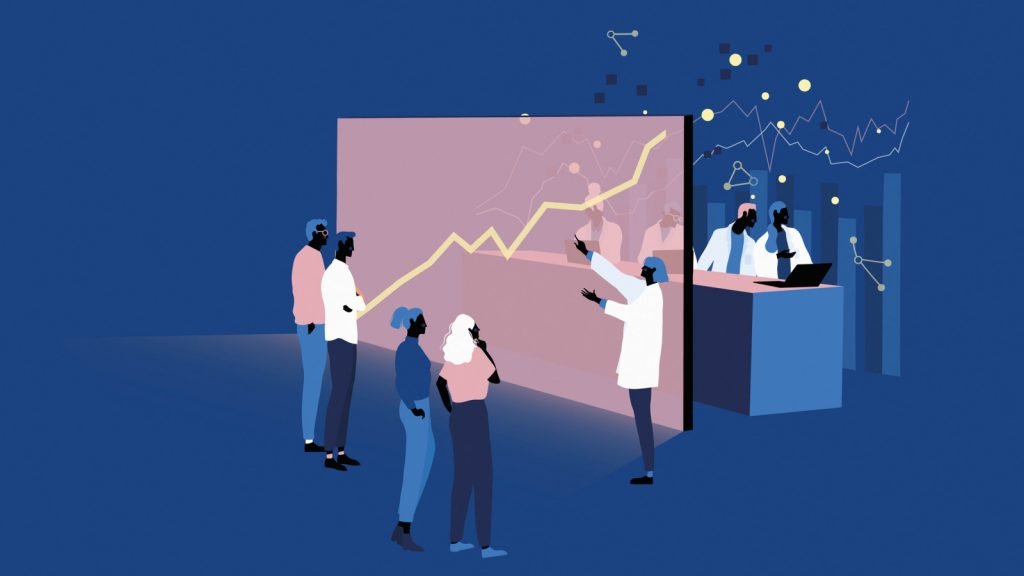The one thing that sets the experienced data scientist from the beginner’s data scientist career is that 99 percent of data sciences lies in the effective use of story-telling!
At the start of one data scientist career, most have the same skill-set as the top scientists with many years of experience and are job-prepared. The best of them learn to use their tools and techniques gained with practice and expertise to become excellent at using data to tell a compelling user-story. A data scientist in the early stages of the career is actually practicing as an analyst of data and probably comes from any of these fields. Namely,
- Data analysis and wanting to pursue academics.
- Analysts on the business intelligence side.
- With computer science, statistics or mathematics expertise.
Large doses of the previous job role are normally used at the beginning of the data scientist’s jump into this field. That is being job prepared! And it will not be uncommon if the analysts are the busy rattling of their insights on blodgets and widgets, the business intelligence or business analysts present information in complex tables and graphs, and the group of CS, mathematicians, and statisticians write code the whole day. But that is not what a data scientist’s role is about especially in this role.
Whether you have deep learning knowledge, can crack ML algorithms, or write compelling codes for vector classifiers the skills you will need to be an excellent data scientist are not the same as the skills you landed the job with.
Your job is to use the data to tell the most compelling story while using your skills, tools and techniques learned to graphically illustrate your narration. Compare your story to a thrilling novel that you can’t put down till the last page. Your tale has to be anchored to the data and last till the final calculations are presented.
Story-telling skills:
For this, you will need the following skills they did not teach you in college and comes with aptitude, practice, and experience in a Data Scientist Career. Let us explore these attributes.
- Structure: This is the manner of presenting data and information in an easily comprehended, logical, no-nonsense and understandable way that any reader or user can relate to. That’s precisely why most storybooks introduce their characters in the first few chapters itself. Most people err in not defining the issue and pitching its solution at the very start of writing.
- Theory of the narrative: Good stories sustain interest till the very end and that is the essence of the narration. Keep your lines tight and use your data findings to get the story across cogently.
- Expressive writing: This is the essential glue that holds the interest, tells the narrative and proves your point clearly and without ambiguity. Your grammar, sentence construction and choice of apt terms and words will go a long way and comes only by practice. Whether it be an email, a press note or internal communication remember that it may land on the table of the management head or your juniors.You wouldn’t want spelling and syntax errors in your calculations or writing style. Avoid ambiguous terms, technical jargon, and irrelevant information. At the beginning all tasks are difficult. They do ease out with regular practice and learning the right way to do things.
- Presenting complex information: Being a data scientist isn’t totally about writing those accurate reports. As you move up the ladder you will be asked for your views, suggestions, and assessment. These are of a highly complex and technical nature and you need to train yourself to present your views without compromising accuracy, truth or the crucial data supporting your premise.This needs a lot of practice in all the above attributes to reach a level of credibility coupled with all the essentials and ingredients of the story. If you fail here you are possibly doomed to remain in those middle rungs of your career and can never rise to the top. Wisdom and skill are not gained by the number of years you spend on the job. They are learned on the job with regular and dedicated practice.
Conclusion:
The difference between the artist and artisan is the situation that occurs in the Data Scientist Career. No matter what your background is, excellence at the data scientist’s job comes from practice and learning from experiences. In data sciences, you will not only have to acquire the right tools of the trade, but you will also have to excel at wielding them artistically to tell the story WITH data. Not tell the story OF data.
At Imarticus Learning the data scientist learns this during the training in the soft-skills and personality development modules. Begin your story-telling today!








